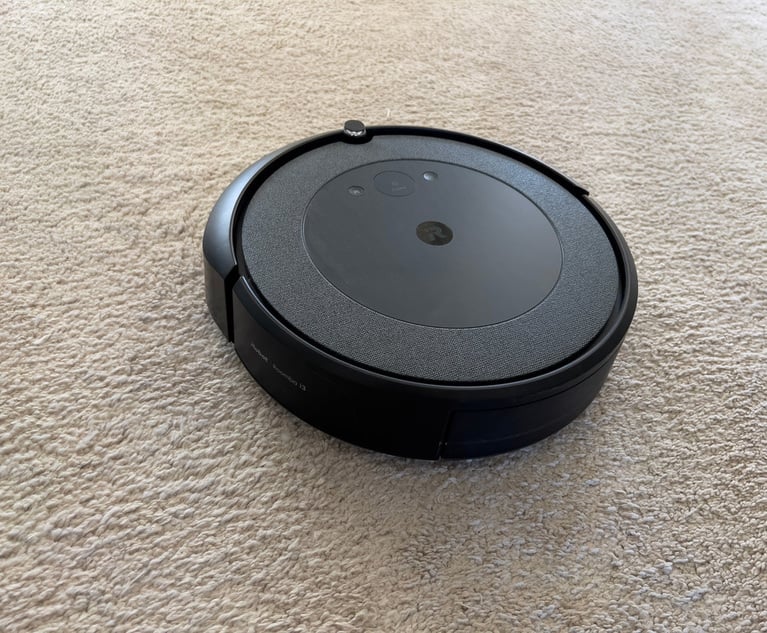Tips on China Tariff Exclusion Requests as Deadline Approaches
“Now’s the time to be ramping up your effort” to obtain exclusions, said Jason Waite, a partner at Alston & Bird who leads the firm’s international trade and regulatory group in Washington, D.C. But he warned that there are “still a lot of unknowns.”
August 16, 2019 at 01:48 PM
6 minute read
 Gantry cranes and containers stand at the Yangshan Deepwater Port, operated by Shanghai International Port Group Co. Photo: Qilai Shen/Bloomberg
Gantry cranes and containers stand at the Yangshan Deepwater Port, operated by Shanghai International Port Group Co. Photo: Qilai Shen/Bloomberg
With the deadline for submitting tariff exclusion requests for $200 billion worth of Chinese imports fast approaching, trade lawyers say they have been busy helping U.S. companies navigate the opaque request process.
Exemption requests for products covered under Section 301 List 3 tariffs on China, which casts a net over a wide range of goods, from food and furniture to tools and electronics, are due Sept. 30. The Office of the U.S. Trade Representative has provided some guidance by stating, for instance, that requests should address whether the import in question can be sourced from outside China.
“Now’s the time to be ramping up your effort” to obtain exclusions, said Jason Waite, a partner at Alston & Bird who leads the firm’s international trade and regulatory group in Washington, D.C. But he warned that there are “still a lot of unknowns.”
“It remains to be seen what sways [the USTR], but this is the process,” he added.
Waite was hopeful that the USTR will do a better job developing and clarifying its methodology for exemption requests as the tariff lists expand and more requests roll in—the first round of List 4 tariffs on $300 billion of Chinese imports is slated to take effect Sept. 1. Tariffs on a second batch of goods are scheduled for Dec. 15.
“It’s one thing to be stingy about exclusions when you’re talking about $50 billion worth of imports of a certain type, but as this list becomes almost everything, I think it’s in the interest of policy and the USTR to have a broad-based analysis of appropriate exclusions,” he said.
At the moment, companies would be wise to avoid basing their exemption petition on the assertion that it will cost too much to make a product on the tariff list in the U.S. or anywhere else outside China, according to Adams Lee, an international trade lawyer at Harris Bricken in Seattle.
“We try to tell them [clients] that the USTR is trying to identify products that really can only be sourced from China,” he said. “It then goes to the issue of trying to define the product that you’re asking to be excluded.”
Define the product too broadly and companies risk undermining their argument that the good cannot be made beyond China’s borders, according to Lee. He said a detailed definition of the product helps bolster the assertion that it’s so unique that it can only continue to be made in China.
“The flip side of the product description issue is if you define it too narrowly the danger is customs officials aren’t going to be able to recognize the product at the port and administer the exclusion,” Lee noted. “You also can’t define it by its end use. You can’t say, ‘This is a screw to be used in this unique application.’ Customs is only going to see a screw.”
Waite added that the “big thing to think through is, ‘Do we have a case on the merits?’”
“The core element of that has been the lack of availability of the product in the United States and, secondarily, outside of China,” he said. “That’s the thing that deserved to be analyzed from a few different angles. What is the product? What’s unique about the product? Where is it available and why might it not be available elsewhere?”
Companies also should be prepared for a long wait—six months to a year—before they learn whether their requests have been granted or denied.
“The bad news is that the process will take a long time to resolve itself,” Waite said. “The good news is if you get your exclusion it’s retroactive. But that’s often very little solace to companies whose cash flow is crimped by the tariffs.”
One company that is feeling a tariff crimp, JSW Steel USA Inc., which initially applauded the Trump administration’s aggressive trade tactics, has challenged the Commerce Department’s denial of its request to be excluded from a 25% tariff under Section 232 on steel imported from Mexico and India.
The Baytown, Texas-based company argues in a complaint filed July 30 at the U.S. Court of International Trade that the steel in question “is not available in the U.S. market in the quality and quantities that JSW USA requires.”
“Despite the foregoing, the Department of Commerce ignored the record evidence establishing that the steel slab JSW USA imports is not presently available in the U.S. market, and instead issued the same boilerplate denial to each and every one of JSW USA’s exclusion requests. As a result, JSW USA has paid tens-of-millions of dollars in tariffs from which it should have been exempted,” the company writes in its complaint.
Devin Sikes, an international trade lawyer at Akin Gump Strauss Hauer & Feld in Washington, D.C., noted that because the exclusion request processes for Section 232 and 301 tariffs are structurally different, there shouldn’t be any spillover effects from the JSW case.
“But big picture, this is a case of first impression,” he said. “The court will first have to grapple with whether it has jurisdiction over the dispute. If it does, it will get into the merits for the first time ever for whether the Commerce Department’s decision comports with accepted administrative law principles.”
Read More:
US-China Trade War: 3 Ways Lawyers Can Help Companies Cope
This content has been archived. It is available through our partners, LexisNexis® and Bloomberg Law.
To view this content, please continue to their sites.
Not a Lexis Subscriber?
Subscribe Now
Not a Bloomberg Law Subscriber?
Subscribe Now
NOT FOR REPRINT
© 2025 ALM Global, LLC, All Rights Reserved. Request academic re-use from www.copyright.com. All other uses, submit a request to [email protected]. For more information visit Asset & Logo Licensing.
You Might Like
View All
Exits Leave American Airlines, SiriusXM, Spotify Searching for New Legal Chiefs
2 minute read
John Deere Annual Meeting Offers Peek Into DEI Strife That Looms for Companies Nationwide
7 minute read
FTC Chair Lina Khan Sues John Deere Over 'Right to Repair,' Infuriates Successor
6 minute read
Trending Stories
Who Got The Work
J. Brugh Lower of Gibbons has entered an appearance for industrial equipment supplier Devco Corporation in a pending trademark infringement lawsuit. The suit, accusing the defendant of selling knock-off Graco products, was filed Dec. 18 in New Jersey District Court by Rivkin Radler on behalf of Graco Inc. and Graco Minnesota. The case, assigned to U.S. District Judge Zahid N. Quraishi, is 3:24-cv-11294, Graco Inc. et al v. Devco Corporation.
Who Got The Work
Rebecca Maller-Stein and Kent A. Yalowitz of Arnold & Porter Kaye Scholer have entered their appearances for Hanaco Venture Capital and its executives, Lior Prosor and David Frankel, in a pending securities lawsuit. The action, filed on Dec. 24 in New York Southern District Court by Zell, Aron & Co. on behalf of Goldeneye Advisors, accuses the defendants of negligently and fraudulently managing the plaintiff's $1 million investment. The case, assigned to U.S. District Judge Vernon S. Broderick, is 1:24-cv-09918, Goldeneye Advisors, LLC v. Hanaco Venture Capital, Ltd. et al.
Who Got The Work
Attorneys from A&O Shearman has stepped in as defense counsel for Toronto-Dominion Bank and other defendants in a pending securities class action. The suit, filed Dec. 11 in New York Southern District Court by Bleichmar Fonti & Auld, accuses the defendants of concealing the bank's 'pervasive' deficiencies in regards to its compliance with the Bank Secrecy Act and the quality of its anti-money laundering controls. The case, assigned to U.S. District Judge Arun Subramanian, is 1:24-cv-09445, Gonzalez v. The Toronto-Dominion Bank et al.
Who Got The Work
Crown Castle International, a Pennsylvania company providing shared communications infrastructure, has turned to Luke D. Wolf of Gordon Rees Scully Mansukhani to fend off a pending breach-of-contract lawsuit. The court action, filed Nov. 25 in Michigan Eastern District Court by Hooper Hathaway PC on behalf of The Town Residences LLC, accuses Crown Castle of failing to transfer approximately $30,000 in utility payments from T-Mobile in breach of a roof-top lease and assignment agreement. The case, assigned to U.S. District Judge Susan K. Declercq, is 2:24-cv-13131, The Town Residences LLC v. T-Mobile US, Inc. et al.
Who Got The Work
Wilfred P. Coronato and Daniel M. Schwartz of McCarter & English have stepped in as defense counsel to Electrolux Home Products Inc. in a pending product liability lawsuit. The court action, filed Nov. 26 in New York Eastern District Court by Poulos Lopiccolo PC and Nagel Rice LLP on behalf of David Stern, alleges that the defendant's refrigerators’ drawers and shelving repeatedly break and fall apart within months after purchase. The case, assigned to U.S. District Judge Joan M. Azrack, is 2:24-cv-08204, Stern v. Electrolux Home Products, Inc.
Featured Firms
Law Offices of Gary Martin Hays & Associates, P.C.
(470) 294-1674
Law Offices of Mark E. Salomone
(857) 444-6468
Smith & Hassler
(713) 739-1250






